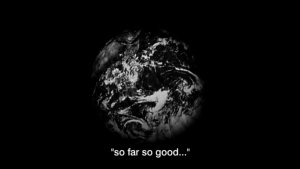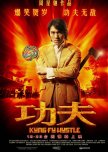
Was this review helpful to you?

A quintessential blockbuster
Watched at the Japan Film Festival 2019Pros
-A generous amount of intense fight scenes, ranging from one on one to many against many.
-A beautiful movie- kudos to director Sato for making the effort to film in China and capture its gorgeous scenery and architecture. In this sense, it felt like a Japanese version of Lord of the Rings or the Hobbit trilogy.
-Well-executed performances all around, especially from Yoshizawa Ryo and Nagasawa Masami. They absolutely radiated power and fortitude.
-Well placed and often hilarious humor that breaks the serious tone.
-Rousing speeches aplenty.
-Nice soundtrack.
Cons
-Adepted from a manga but regardless, the characters often feel and act like stereotypes, with not much unique to distinguish them otherwise. The story too, though well executed, is nothing new.
-Some of the fight scenes got a little out of hand, especially with the jumping.
-Shin's words and behaviour are repetitive at times.
-Certain characters seem to mysteriously disappear and pop up again much later as needed.
Conclusion; Not groundbreaking (apart from the obviously luxurious budget used to create it) but a very fun watch with a grand scale and likeable characters.
Was this review helpful to you?
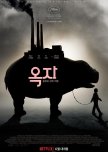
"I'm an animal lover!"
Bong Joon-ho's 'Okja' depicts a conflict between a corrupt corporation and a radical animal rights organisation over a giant porcine beast, with an innocent girl being caught in the crossfire. This charming yet brutal satire reveals the hypocrisy of the phrase "animal lover", a phrase that the corrupt fat-cats of the Mirando corporation and the not-terrorists of the Animal Liberation Front would both use to describe themselves. Director Bong's triumph is ripping away the idealistic facades of both sides- revealing the slaughterhouses behind the smiles and saccharine PR of greedy corporations, but also the cruel sacrifices made by animal rights groups for the sake of a 'greater good'. Yet given how we see Mija catching and eating fish, it is made clear that this film's meaning can't be cut down to 'meat is murder'- rather, 'Okja' is a condemnation of how the lives of animals- sensitive beings that can feel fear and pain- can be callously invalidated for the sake of human agendas. We can eat meat if we choose- but can we really love animals when we put their necks on the chopping block and our money in the pockets of their murderers? Can we really justify the consumption of those cute critters with bullshit slogans like 'eco-friendly' and 'GMO-free'?Director Bong demonstrates his capacity for drastic tonal shifts once more to magnetise viewers; they laugh at the farcical chase scenes and smile at the friendship between Mija and Okja, and then are walloped in the guts as they hear the screams of anguished pigs in abattoirs and testing rooms. Similarly, his decision to shoot in both rural Korea and bustling New York contrasts the large-scale ambitions of Mirando co. and the ALF with Mija's simple desire to have her only friend back, adding moderation and a human touch to what could have been an impersonal clash of black-and-grey forces. Generally, the ensemble international cast performed well; Tilda Swinton was particularly impressive in her duel role as the Mirando sisters. Her ability to contrast Lucy's narcissism and false cheer against Nancy's cold pragmatism and barking assertiveness demonstrated the duality of greedy and opportunistic corporations; their flowery public front and their aggressive, business-like drive. Without Nancy's sunglasses and hairstyle, I would've been hard-pressed to notice the sisters' singular actress and I hear that Swinton was also amazing in Snowpiercer, which is next on my list. Seo-Hyeon Ahn, despite her young age, was more than a match for the Western performers, capturing Mija's fighting spirit and love for Okja with sincerity and poignance. And I was surprised to know that before her excellent turn as the crazy maid in 'Parasite', Jeong-eun Lee was Okja's voice actress- just how could a human convey such animalistic grunts, roars and squeals?
Unfortunately and in more than one way, 'Okja' is far more feast than famine. On several occasions, Director Bong overshoots with the satire; his flamboyant bigwigs are often transparent and hard to take seriously with their childish histrionics, not helped in the slightest by the overacting that breaks out on several occasions. In my opinion, the film's didacticism is far too thinly veiled; replace the superpigs with regular livestock and many scenes become identical to the 'do you know where you food comes from!?!?!?!?' videos that are shoved in your face by Peta or advertised on your local traffic light. But in part, these flaws are redeemed by a powerful ending that packs both hope and tragic realism.
As I wrote this review, I was tucking into a nice big plate of marinated ribs. Though I don't think that I will stop eating meat, I will certainly know to not inject any sense of 'rightness' into the deed.
P.S. I don't get how this film is championed by vegans for gods sake you literally see Mija and Gramps catching fish and making fish stew.
Was this review helpful to you?

'Clock-up!'
The main selling points of Kabuto are the suit designs and the dynamic fight scenes. Both the worms and the riders are based off insects, highlighting the similarity of their powers, but the sleek, almost robotic rider designs contrast with the creatively monstrous worms- this, I find outstanding.The characters were, on the whole, well executed, and had great interactions with each other. An issue to point out was how Tsurugi's shifts between a driven, serious character and comic relief felt fairly jarring, but he too was enjoyable nonetheless. The worms were interesting villains, their 'Thing'-like gimmick and hyperspeed making them formidable foes- however, the paranoia factor around the aforementioned ability could have been utilized a bit more.
The issue with Kabuto was the pacing of its story, especially towards the end. The show spent too much time on comic, filler episodes (such as the ramen cookoff), and thus didn't have enough time to develop its crucial endgame. The events that set the ball rolling happened too fast and too late, and the revelation of the true antagonists and their motivations felt underwhelming. This badly ruined my experience of watching the show, and I felt it ended on a sadly insipid note. Even so, it's still worth watching.
Was this review helpful to you?
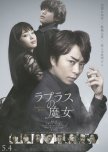
I probably gave this an extra half star because 1. I love snowy Japan and 2. Suzu totally slays on the poster in that black dress. Yeah you go sisterrr-
Was this review helpful to you?
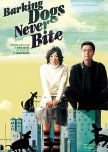
This review may contain spoilers
"Conscience is the dog that can't bite, but never stops barking." -Unknown
I absolutely loved Parasite so the next step for me was to go to the start of Bong Joon-ho's filmography. While I can't say that 'Flandersui Gae' is as clear and polished of a gem as Parasite, it definitely feels like a spiritual precursor- not least because of the dark humor, tonal shifts and class/poverty centred themes. Seeing the basement dwelling hobo, privileged little dogs and fumigation, I wondered whether director Bong was conscientiously building on this film as he shot his Palme D'or/ Academy Award winning flick almost twenty years later.For a film that depicts taboo practices, 'Flandersui Gae' is surprisingly charming and droll, and while it takes pleasure in dispensing of its small and fluffy friends it makes sure to make you feel guilty for feeling the same way afterwards. The notion that actions have consequences, while not a central idea, is something that is dwelled upon.
While focusing on an unemployed lecturer and a bored book-keeper, it expands to capture the lives of those living in the central apartment complex. With the exception of the hobo, none of them are desperately poor. They can afford to buy groceries, to get drunk out of their minds, to keep pets despite the apartment's rules. But they are effectively prisoners of their mediocre social situations, sentenced indefinitely to a boring future. They seem to represent a demographic of Korean society that has hit a dead end in life- a dead end that can only be broken through via a pipe dream or moral transgression. Their aimlessness, opportunism and crushed hope are depicted empathetically by director Bong. After all, he had once stood in their shoes, having lived in that same apartment complex prior to directing. Considering this, I personally think that Yun-Ju is driven to murderous intent because the incessant barking reminds him of his mediocre standing in life. Its as if the pampered dogs are taunting the laid-off academic who, even within his prison of an apartment, is emasculated and controlled by his demanding wife. While he and Hyun-nam have dreams of their own, these aspirations are silenced by their social situations. Only at the film's end, when he resorts to bribery and she is fired from her job, do they catch a break from their servitude.
'Flandersui Gae' is one of those films that is more on the implicit side, a given due to a number of dialogue-absent scenes and some slightly overlong tangents. Nonetheless, it is intriguing and thought-provoking, and I think that it will get even better on a second watch. The performances are naturalistic and the jazzy soundtrack is low-key but pleasant. If you liked Parasite I would strongly advise you to check this out.
Fun fact, the Korean title denotes this film in part as a satirical reaction to the English children's tragedy 'A dog of Flanders'. For some perverse reason, this story is intensely popular in Korea and Japan (especially amongst kids), where it has spawned numerous adaptations. While this story affirms that dogs are indeed man's best friend, director Bong evidently thinks otherwise.
Was this review helpful to you?
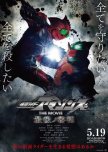
Kamen Rider Amazons - The Last Judgment
2 people found this review helpful
This review may contain spoilers
I went into this with really high hopes, having enjoyed season one but wanting for some closure after the fairly mediocre second season. For the most part, this was an utter mess. While the plot started off decently, making it seem as if Alpha and Omega were being hounded in to a final, climactic battle, the majority of the film ended up dealing with a grim yet unremarkable arc that would've fit better some place in season one, rather than in the supposedly dramatic conclusion- and then having the two main Amazons fight to the death as a seeming afterthought. I was looking forward to seeing Neo-Alpha in action, but, despite his interesting design and concept, he too was a disappointment- he didn't receive nearly enough action time and his agenda seemed weak and inconsequential in the face of not only the two main Amazons, but of the series as a whole. Furthermore, he literally had no background whatsoever, the writers having bypassed the need to explain him with flimsy plot devices that went unquestioned throughout the film. Ignoring the film's lousy pacing, weak character interactions, the huge lack of music (which helped set the atmosphere in the first season) and the fact that you just didn't care when characters died, the greatest issue at hand was that it didn't fit in at all with Kamen Rider Amazons. Yes, the angst, suits, characters, gore and subdued colors were all there, but it all felt hollow- the depth of the first season and even parts of the second season was nowhere to be seen. Death, humanity and morality were all important themes in the series- what does it mean to be human? Are monsters deserving of life? Who are the monsters? The film briefly mentioned and played with these ideas before tossing them right out of the window- when Haruka and Jin reunited and then proceeded to start tearing each other into shreds, seemingly on a whim, I didn't feel any gravitas or tension whatsoever- frankly, it seemed like it was bordering on (rather poor) farce. Speaking of which, the attempted inclusion of comedy in the conclusion was utterly out of place, and was completely needless.
When Haruka got on his bike and rode off at the end, one thought entered my mind. "Is that it?"
Was this review helpful to you?

Episode 1 was written by Higa Sakura and directed by Kore-eda Hirokazu. It depicts the actress coming back to her hometown to spend time with her mother for a day.
The crux of the episode is Arikasu's newfound sense of alienation towards her mother, who has changed subtly yet worryingly. This is exacerbated by the arrival of a male stranger that Arimura senior is alarmingly close to, who sits uncomfortably between being a convenient handyman and a surrogate son. However, it is clear that even with this stranger in the picture, the mother-daughter bond hasn't been broken and there is still warmth and love between them.
This episode is essentially a mini Kore-eda family drama that just happens to have Arikasu as its main character- rather than a pure actorfic solely designed to please fans of its baby-faced, softly spoken star. I like how the use of the various Arimura-themed paraphernalia and scattered references to her work aren't gratuitous, instead being used to highlight her mother's pride and her inability to separate her career from her private life. This, along with Kore-eda's deft handling of minute human interactions and a naturalistic turn from the usually inconsistent star go along way in humanising the now-ubiquitous Arimura, whose face looms down from screens and advertisements across the nation.
Kore-eda's signature elements make themselves present- food preparation and meals as symbols of familial connection, idle conversations while walking down the street, flaky mothers, meaningful close-ups on seemingly insignificant details, the passing of a train in the distance. Without spoiling too much, this episode could be described as a partial amalgamation of Still Walking, Going my Home and Our Little Sister- those who've seen these works will understand what I mean after they've watched this episode. While it isn't as complex or well-developed as Kore-eda's best works (the brevity of the story is mostly to blame), it has still been simmered carefully to produce subtly deep and bittersweet flavors.
Episode 2 was excellent; a scathing social commentary about the way women are perceived in a sexist society. Viewers of the series who are just watching for Arimura to act 'kawaii' should take a step back or be slapped in the face by the episode's lampooning of that very word. After all, Japanese society dictates that ambitious women are 'self-important' and women SHOULD be demure, submissive and yes, 'kawaii'- what better way to attack this toxic social attitude than to use an actress whose public persona and roles thoroughly exemplify this k-word?
Arimura acts as an observer here; initially viewing a previous romance drama of hers, and then bearing witness to a relatively one-sided conversation between her friend and a male coworker, who is clearly just using the former as leverage to see how 'kawaii' Arimura is in person. She is also observed herself- much of the dinner scene is seen from the co-worker's perspective, as he ogles her and clearly views her as little more than an object of desire.
Arimura's discomfort at the conversation, during which the coworker complains about female superiors while making leering comments towards her crescendos into a beer-fueled rant against not only the way she is treated but the entire status quo of male-female relations in Japan; how women are expected to lower themselves emotionally and intellectually in order to gratify the needs and wants of men. An unexpectedly difficult episode to watch, but all the more fantastic and socially relevant because of it. That being said, there is no way that this would be shown on national TV because people would be scared and put off by how it challenges the status quo. OMG Kasumi-chan speaking out against sexism? I'm literally shaking an crying rn. Totally not 'Kawaii' at all!1!!
I honestly think that Arimura's acting has improved- her performance in Flying Colors was good, and now this too impressed me. Towards the end of the episode, she gets the chance to have an almost Sakamoto Yuji-esque speech, where her acting ability can be shown off. She doesn't raise her voice too loudly but the sense of anger and spite is clearly apparent; she was almost channeling Fumi Nikaido in this regard.
Episode 4 plays out like one of the dream device sequences from the children's anime, Doraemon. Initially starting off with a dream fantasy of Arimura's in which she dates Kevin Takeda, a half-American dreamboat who hails from Boston, it takes a darker turn into the relentless nature of paparazzi in Japan and the constant sensation of being watched, spied on. This episode conveys the double-edged nature of fame; how it comes with constant public scrutiny and the intrusion of the nation's ever-hungry desire for gossip into one's personal life.
Episode 5 is surreal and almost arthouse-like. To sum it up, Arimura can't open a jar of jam and spends the entire day in a bizarre, disconnected state in which she uses roundabout methods to get others to do it for her. The most prominent of these sequences involves two schoolchildren who bash each other with their karate kits and have back-and-forths about whether the other is a liar or not. One of them wonders whether Arimura is in fact Banksy, the elusive English graffiti artist. The most I could say about this episode is that it conveys the relatable sense of getting caught up in, and wasting time on something menial that should take just a second to achieve; and the subsequent relief of freeing oneself from this odd burden. There's probably some deeper philosophical meaning to it all and I'd be happy if someone could offer their thoughts on it. The episode does have a nice artistic symmetry, its conflict beginning and ending with the strike of a drumbeat. This is also the first episode to feature a Western guest role, in the form of a mathematician (huh?) by the name of Peter Frankl playing a confused convenience store manager.
Was this review helpful to you?
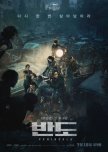
TTB:
Varied cast of characters defined (and unwrought) by their human imperfections, buoyed by a range of fantastic, occasionally despicable performances. You and I, and how we'd react to a sudden zombie apocalypse. Also, great character development for the main 'hero'.
Sense of high production value due to a cleverly used physical setting (train interior) and fantastic attention to detail with the zombies themselves. Behind the clips footage shows the efforts that the team undertook to paint up each individual zombie to seem rabid, horrible and ironically life-like.
Aside from their appearance, the zombies were excellent not only because of the frightening manner in which they twitched, scuttled and savaged their human brethren but because we saw that they too were normal, unsuspecting humans. There was great pathos in seeing members of the cast turn into these beasts, even moreso when the living had to fight against their own friends.
Novel concept (the train) that created a constant feeling of entrapment and claustrophobia, the notion that although one is on the move the threat is always breathing down their necks or clawing on the next set of doors.
Simple yet well-executed social allegory about class division, the pitfalls of Capitalist greed and the dangers of individual self-preservation towards the collective fight for survival.
Peninsula:
A varied cast of characters let down by being either too bland (the hero) or absurd to fully empathise with. The 'villains' in TTB are the sneering upper-class bigots that you might see in real life. The 'villains' in Peninsula, while not out of place in a post-apocalyptic film, were too cartoonish to see as realistic or despicable. And while Train To Busan kept me guessing until the end, Peninsula made it easy to see who death was hovering over.
A larger budget that was squandered on an over-reliance on CGI. While certain scenes of the destroyed Korea carried weight, the backgrounds and especially the car chases often felt nauseatingly cheap-looking.
'Weight' is a theme that can be considered more broadly when comparing the two films- both emotional and physical. In TTB, the human struggle was emphasised by the improvised weapons- baseball bats, sports gear and the fists of the survivors. These 'weapons' carried weight with them.The close-quarters combat was brutal and ugly, we were seeing ordinary people having to struggle and fight for their lives. By contrast in Peninsula, guns were used abundantly, mowing down hordes of zombies in great swathes- diminishing both the threat of the zombies and the desperation of the humans (though this was still present).
The zombies themselves lacked weight. From friends and family turned into cannibalistic beasts, they became rag-dolls that would be sent flying with a well-timed car impact, video game entities that could be thwarted and exploited en masse with a few (admittedly clever) tricks. It didn't help that they too were CGI much of the time.
Awful, and awfully abundant English dialogue that was sometimes as coherent as the zombie screeching.
Derives too heavily from pre-existing media like the Mad Max franchise.
Melodramatic like TTB yet lacking the first movie's well-deserved emotional punch. A lot of sentimental music and slow-motion crying scenes. All the meaning in Peninsula essentially boils down to basic moral waffle like 'Make sacrifice good', 'Family important' and 'Repent for mistakes good'.
...
Was Peninsula a terrible movie? No, in fact it was mildly entertaining overall and while I wanted to do something else, I managed to sit through it without skipping parts. It's a decent enough watch but lacks substance.
Was this review helpful to you?
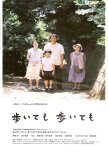
"I'm always a little too late."
'Still Walking' was conceived by Kore-eda after the deaths of his parents, and embodies his regret in being unable to fulfil his own filial piety. To keep things brief, this film is a masterpiece. Kore-eda's ability to balance heavy themes with warmth and humanity proves he is at the height of his craft. The acting from every performer couldn't be better, and the minimalistic soundtrack was always used at the right moments. It definitely warrants a second watch."The characters are utterly ordinary people: the film takes place over the course of a single summer day.... nothing of consequence happens during their rare, overnight family reunion. Yet over the course of this day, as deceptively tranquil as a calm sea, the tide flows in then out, and wavelets constantly ripple the surface." Hirokazu Kore-eda, 2008.
Was this review helpful to you?

Was this review helpful to you?

Fun, heartwarming and clever
A wonderful feel-good series packed with witty comedy, likeable characters and surprisingly deep moral lessons (which appears to be the norm for Kankuro Kudo dramas). One could call it a story of reconciliation on multiple levels- Buddhism and Christianity, men and women, parents and children, the past and present, and external versus internal identity. Acting is mostly in typical J-drama fashion but it does feel very appropriate for the mood of the series and it is executed very well, with Mitsushima Hikari's Hachiya-Sensei being a highlight. Kuroshima Yuina and Nishikido Ryo were also great, and there wasn't a single performance I could not commend. Nice theme song and BGM. As for the negatives, the series spirals into romantic territory with too much zeal, tends to resolve conflicts too quickly and easily, and jumps between time periods a bit too much- though these aren't major detractors. This is a great series to watch if you feel like being in a good mood. If only Hara Heisuke was my teacher at school.Was this review helpful to you?
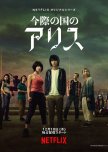
This review may contain spoilers
...as long as one is safe, it doesn't matter how many others die. Isn't that humanity?
My lord, what an utterly incredible experience this was. I've always thought that Sato Shinsuke was a director capable of making live-action adaptations that are not only watchable but actually entertaining (let's just ignore Bleach). His combination of dark humour, uncompromising ruthlessness, kinetic action sequences and high budgets allow his works to succeed where others have been derided. Alice in Borderland is probably his most popular work to date (breaking into the Western mainstream), and in my opinion, his best as well, in its blending of intense, hair-raising thrills with probing questions about morality and survival.Alice in Borderland is a series that examines how 'human' qualities- compassion, rationality, camaraderie- are stripped away by death's cold stare, leaving behind the singular impulse to fend for yourself and throw your brethren under the bus without a second thought. In the process, the capacity for high reasoning is often left behind, and the tragedy of many of the games is that participants will impulsively launch themselves to their deaths without realising that the solution could have been easily discovered with just a bit of thought and teamwork. In the second half of the series, The Beach sets up an interesting Lord-of-the-Flies-esque scenario that demonstrates the impossibility of establishing order amongst humans in the absence of societal restraints, resulting in (especially amongst the executives and militants) the emergence of violent and hedonistic impulses that only have a chance to creep forth in parallel Tokyo. As suggested by some of the characters' names (rabbit, cheshire) and the recurring zoomorphic elements in the games (tigers, jaguars, horse-headed killers), Alice in Borderland reminds us that we were born as animals, and, if we were to be placed in a world where we are both hunted and allowed to roam free- we will become animals once more. And those who value their humanity? Though anyone can die, they stand the highest chance of survival.
But depth of themes alone don't make a series memorable- there has to be fun and games! And how darkly hilarious these games are, blending an off-kilter playfulness with horrific violence and ironic twists that are often so obvious that participants will trip over them and fall to their deaths. Eschewing the grandiose, sweeping setpieces so often seen in Western dystopian works like The Hunger Games and Maze Runner, Sato opts for ordinary apartment complexes and subway tunnels, plainly decorated and illuminated with sterile white light that contrasts with the red of spilt blood. Marrying the fast-paced hand-to-hand combat of 'Kingdom' with the wanton firearms slaughter of 'I am a Hero' and 'Inuyashiki', the series DELIVERS on the action sequences (my favourite would have to be a certain strobe-lit fight scene in the penultimate episode), though these are sadly somewhat absent from the middle of the series, which suffers slightly by trading off thrills for a slightly fanservicey mystery element. And as shown in the infamous third episode, this is is a series which isn't afraid to pull its punches, driving home the hard premise that anyone can die-and that ultimately, survival is as much a product of pure luck as it is of intellect and stamina.
With the backing of Netflix and his usual high-level polish, Sato's budget and camerawork far exceed the tacky, cheaply-filmed quality of most Jdramas. As usual, he brings in a cast of A-listers, all of whom perform at least admirably. Yamaken was dashing as usual, but the standouts were Tsuchiya Tao and Asahina Aya, who demonstrate a capacity to be excellent action heroines, and Murakami Nijiro, who delivers an enigmatic, smirking performance as the Cheshire Cat of this violent, bizarre Wonderland. Overall, Alice in Borderland is a must-see, and I just hope that the second season keeps the same level of quality.
Was this review helpful to you?

Was this review helpful to you?

The soundtrack to this film is undeniably fantastic by the way- finessing orchestral works, single voice and guitar, solo piano, jazz, enka, c-pop, reggae, EDM, didgeridoo, a choir of screaming children, and more. Listening to it on its own is quite an experience. Surprising for such an esoteric film, it boasts an all-star cast with names such as Asano Tadanobu, Kikuchi Rinko, Kase Ryo, Anno Hideaki, a school-age Kaho and Andrew Alfieri, a young caucasian 'non-pro' who clearly cannot speak Japanese and may or may not be the star of the show. It is currently on Youtube.
Was this review helpful to you?

